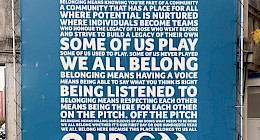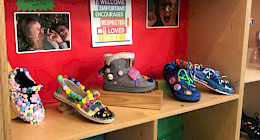
How to manage challenging behaviour in class

8 years ago
Children with special needs can often be held back by factors which are not related to the disability with which they are born. From an early stage in their development they can be treated differently to their siblings and their peers.
While they deserve the respect of being treated the same as all children, it is often the case that rules are more likely to be relaxed. Expectations of appropriate behaviour can be lowered. In a word, children with special needs may be spoiled. Unfortunately, this can contribute to what is called “challenging behaviour”.
Most often, problems occur when a child’s unreasonable expectations cannot be met. Tantrums, refusal to cooperate, meltdowns or aggression are among the inevitable outcomes.
The truth is that carers actually have to be more strict, rather than the opposite, when it comes to applying social norms for children with special needs.
Here are some fundamental rules I follow in my work supporting children who challenge. They are as relevant for the classroom as they are for the home setting.
1. Resist the temptation to spoil a child with special needs
The last thing they need to think is that they are special. If they are afforded a status of privilege among peers or siblings, they will lose the resilience necessary to develop independence in their adult years.
The same rules should apply to a child with special needs as to others. So avoid hugs with strangers or those with whom the child only has a passing acquaintance.
While it may feel good for the recipient, it is not good for the child with special needs. Teachers and SNAs take note. If you don’t hug the other pupils, which I presume you don’t, no hugs for the child with special needs. This is a fundamental principle.
2. A limited capacity to communicate can lead to frustration
Many children are visual learners. Enhance communication by using visual prompts. They say a picture paints a thousand words.
This applies particularly when it comes to enhancing communication with a child with special needs. Gestures, pictures, objects of reference, and mobile phones (yes, they are useful for some young people) are just some of the communication aids that are so vital.
3. Have a basic set of rules set up with pictures as well as words
No more than five items for children with special needs. These rules should instruct the children what to do, such as, “be kind to others”. Avoid rules telling them what not to do, such as “no spitting”.
All the child understands is what is presented, whether positively or negatively. Avoid spitting by not mentioning it at all! Make the rule all about what behaviour you are looking for.
4. Praise good behaviour and be specific about what was so good
It is not necessary to provide regular treats. Genuine praise is the most powerful reward available to carers.
None of us gets tired of hearing our name in the context of a job well done. And it increases the likelihood that the positive behaviour will be repeated. This is universal.
5. Ignore bad behaviour
I have seen parents and teachers go out of their way to elicit an apology from a child with special needs following an incident of challenging behaviour.
Let me be very clear. “Sorry” is the most redundant word in learning disability. Far too much time is wasted in pursuing it and it simply provides the child with a vehicle to receive more attention.
Ignoring sends a far stronger message that you do not approve. Too often carers feel that they cannot allow an incident to go by without this ritual of seeking an apology. It is a waste of time.
6. Same rules for bad behaviour
If the consequence for bad behaviour in the classroom is that a child must stay in the classroom during yard time, this must also apply to the child with special needs.
Indeed, there should be a very low tolerance for acting out behaviour, and consequences should be applied immediately.
7. Always keep raising the bar for children with special needs
For example, the idea of everyone receiving a prize at sporting events denies them a necessary life experience, that is, is to learn how to overcome failure.
Too often we deny children with special needs this very necessary learning process. In life we learn far more through failure than through success.
8. Take small steps
It may, at times, feel as if you are taking two steps forward and one back but keep going. Task analysis, breaking tasks down into small steps, is a useful strategy. It all contributes to moving forward.
9. Plan ahead
One of our greatest fears is the fear of the unknown. This is particularly the case for children with special needs. They are most secure with familiarity and routines.
Always plan ahead and let them know what to expect. A visual schedule of activities works very well in any setting.
10. Focus on structure
Children with special needs are most likely to act out in situations where there is an absence of structure. Transition time at school is an obvious example.
It is important for carers to put time into planning ahead. This will prevent problems or will lessen the impact should a problem arise. The best way to manage challenging behaviour is to aim to prevent it from happening in the first place.
11. Break the bad habits
Quite often some obvious habits go unchecked and lead to challenging behaviour.
Poor diet, absence of a proper sleep routine, lack of clear communication, absence of a detailed plan are just some of the errors which are all too common and which lead to problem behaviour.
Children with special needs have a place in our communities, our schools, our amenities.
In order for them to integrate fully, we all need to be aware that they are far more like their non-disabled peers than different.
They are not born with challenging behaviour. It is not an inevitable characteristic of a person with special needs. It is a learned behaviour which, with the right strategies in place, can be unlearned.
By being aware of these strategies, carers can ensure that all children with special needs reach their full potential.
Dr Mark Harrold is a clinical psychologist who specialises in working with children and adults with special needs.
The above article was originally written by Mark Harrold and published by the Irish Times on February 8, 2018.



